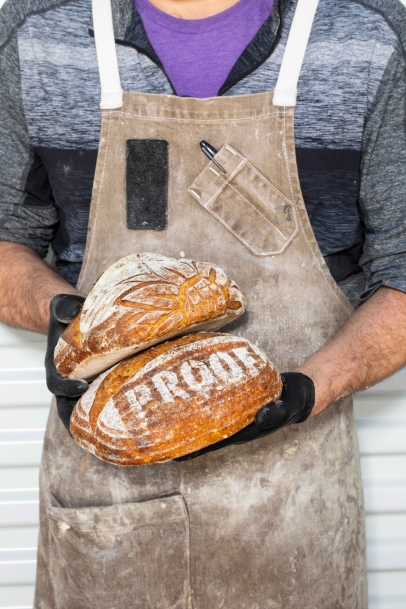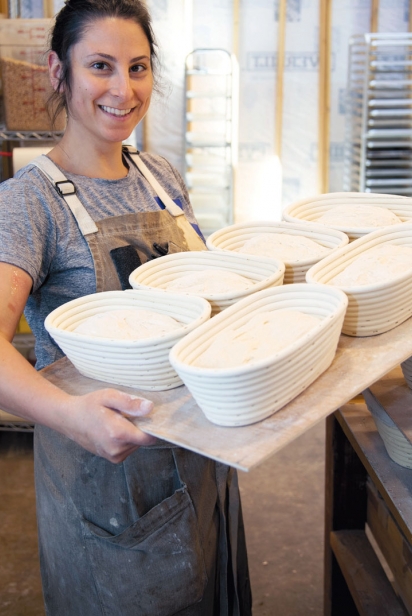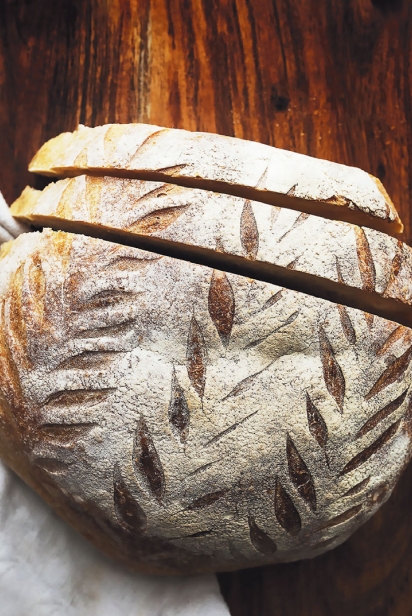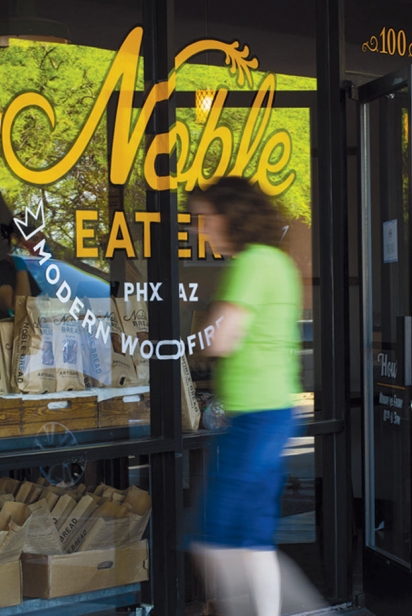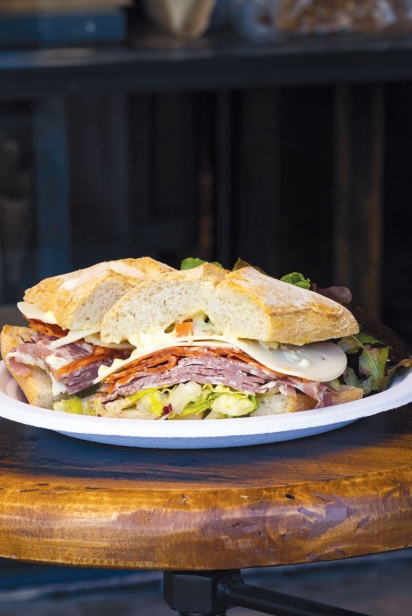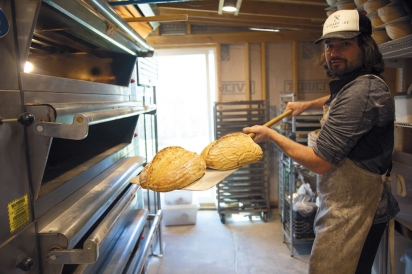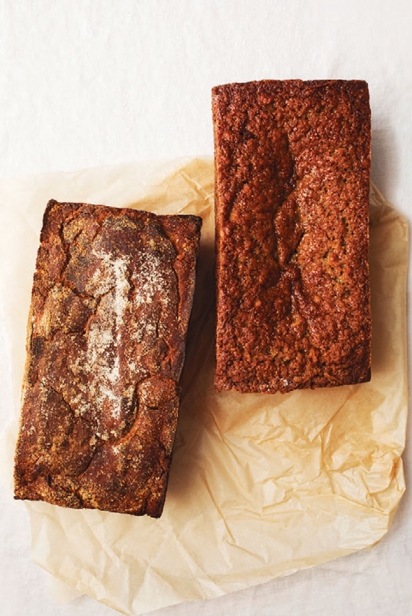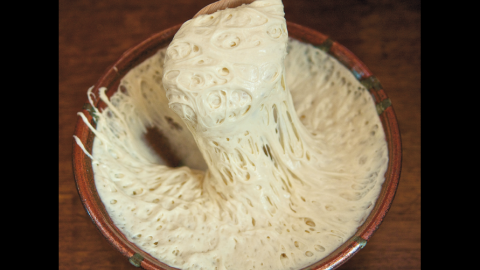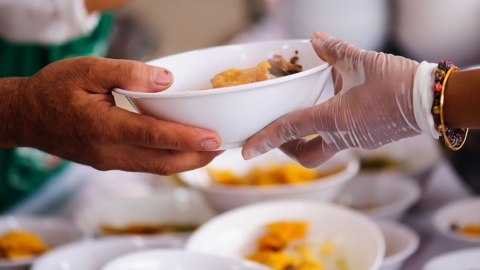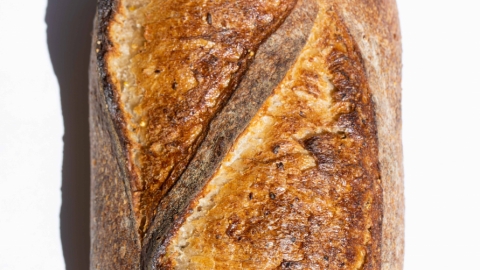Rising to the Occasion
Valley Bakers Preserve a Food Community, One Loaf of Bread at a Time
If there’s one thing the pandemic crisis has revealed, it’s the fragility of the industrial food supply chain. Consumers have found grocery store shelves empty of basics like eggs, butter and meat, even while farms across the country are dumping milk, crushing eggs and euthanizing chickens because the link between producers and consumers is broken.
Local food systems are more critical than ever, and three local artisan bakers are working to keep themselves and their local collaborators afloat, even in the midst of chaos. Proof Artisan Bread, Hope’s Artisan Bread and Noble Bread have pivoted their businesses to keep Valley households supplied with healthy local produce, meats and other products, in addition to bread.
The bottom fell out of the Arizona food world almost overnight when Gov. Doug Ducey delivered his virus-driven, stay-at-home proclamation in mid-March. Restaurants and the small businesses supplying them suffered a profound shock. The burgeoning local food community, one which had been growing and thriving for several years, found itself caught in the fallout from a global pandemic. While small food producers were deemed essential businesses by the governor’s decree, many lost their primary markets—the restaurants and institutional food buyers who purchased their meat and eggs, radishes and lettuce, jams and spices. And bread.
Jon Przybyl and Amanda Abou- Eid, owners of Proof Artisan Bread in Mesa, had finally settled into a predictable weekly routine after three years of owning the company. But when the crisis hit, “We immediately felt that we needed to figure out some sort of a response, and every week there’s been a huge evolution taking place to be able to continue to safely distribute bread. It’s been an interesting few weeks, for sure,” says Przybyl.
“What we decided to do in response to this situation was, first, stay open,” he says. “We didn’t have any difficulty deciding that. We believe we’re among the more essential services, the main reason being we have a really strong local supply chain that’s stable. We have the ability to convert really large quantities of raw ingredients like flour into highly nutritious bread.” Proof sources its flour from local grain producer Hayden Flour Mills.
The second decision involved their product mix. They elected to eschew the pastries and specialty items to make more bread. “We can see people need bread,” Przybyl says. “We go to the grocery store and expect to see aisles and aisles of bread, and there’s none.”
The company also geared up to bake five days a week, instead of twice. Pre-pandemic, Proof served about 1,100 retail customers weekly, mostly at Saturday farmers markets. Now, they deliver bread to small markets and farm stands all over town, including Arcadia Meat Market and Kream Coffee in central Phoenix, Cider Corps in downtown Mesa and Steadfast Farm and Agritopia, both in the East Valley.
Przybyl says they’re cementing their relationships with other small food producers and vendors in town, as well as making it easier for people to buy local and support them. “We’ve all worked together in some way, shape or form before, but with all that’s happening, we’re connecting even more closely, aligning even more closely, and creating these little local grocery markets around town.”
Proof has used their email list to gauge customer interest, encourage pre-orders and spread the word about places to pick up their bread. “We’ve been able to mobilize a whole new community of people who are discovering local food and help them connect,” he says. “We’re doing all we can to drive traffic, which is why we partnered with farm stands. Bread is an easy medium—it’s easy for us to connect with bread.”
In Goodyear, Hope Mendrin is forging alliances with other local businesses through her micro-bakery, Hope’s Artisan Bread. The early days of the pandemic weren’t easy for her, until recently a single-person shop. She lost several accounts, and it was so stressful she burned both her hands and couldn’t bake for two weeks. Fortuitously, her brother, Esai Bolderoff, had joined her as a baker right after the first of the year, so he was able to help her through the initial challenges of pivoting her business.
Mendrin had already built a robust email list and has always encouraged her customers to pre-order and then pick up their bread on Saturdays at the Peoria farmers market. But now she’s added new pickup points and is offering free delivery to homes all over the West Valley.
“I’m seeing such a huge need in the community for bread and groceries. It’s mind-blowing to see what’s happening in our own little community,” she says. “And then seeing how the community is coming together. For example, Blue Sky Farm, they’ve reached out to us to supply them with our pastries and sweets on a daily basis. That’s been a huge, huge help in terms of replacing our lost accounts.” Danzeisen Dairy and Café Bebida also carry Hope’s breads and pastries.
The idea of community is a thread running through everything Mendrin does. She says she’s always dreamed of having a small mom-and-pop bakery/ grocery store, and as other small businesses have suffered in the pandemic shut-downs, she’s started building a virtual store on her website. Customers can order products from Sonoran Pasta, Miss Tiff’s Caramel and Confections, Brew City Roasting Company and others, to be included with their bread deliveries.
“Having that backbone of community support—businesses supporting one another and combining shops to help keep each other afloat—that could take us through this whole struggle,” she says. “It may become a beautiful thing, where quality businesses are aligned and serving the community that way. With everything we’re trying to offer online, not just our own products, but others’ too. Now we’re going to be able to help another business, and they’re going to help us, and then we’re going to be able to offer more products available to the customers and community through delivery.”
Mendrin says a customer remarked to her the other day that her name is especially apt right now. “She said, ‘You’re Hope’s Artisan Bread, and you’re bringing the gift of hope through bread.’ Wow, I never thought of it that way. I’ve never understood why I was put on this path of making bread. It never was a goal. And now I know why we’re making bread—hope was the reason all along.”
Noble Bread (no relation to the author) in Phoenix is a mainstay at farmers markets and restaurants around the Valley, and founder Jason Raducha says that although he lost most of his wholesale restaurant business, he’s been able to stay open.
“We’re still baking; we’re still fully operational. We’ve been really fortunate that we haven’t let go of any of our employees,” he says. “This has allowed us to transition our restaurant [Noble Eatery] to a takeout facility, and we’re doing a lot more retail sales from the Eatery. We have a heavy presence already at the farmers markets, and I think it’s become even more important to be there every week and provide bread to those communities.
“The other thing that we’ve transitioned to is we’re supporting a lot of people who are doing CSA or produce boxes,” he adds.
At Noble Eatery, customers can find not only the regular menu for takeout, but special chef sandwiches as well. Raducha features a different local chef every week, and all proceeds from the sandwich sales go to either the chef’s favorite charity or to their employees who are laid off. He says Chef Charleen Badman’s frittata sandwich sold out the first week, and others have been equally popular. “It’s really amazing, actually. It’s cool to see the support of everybody,” he says.
In addition to the regular menu, Noble Eatery is offering multi-course, take-and-bake meals for four. “I think people are struggling with the takeout thing,” he says. “Because if you look at a lot of the places that are open, there’s not a lot of mid-range.” Raducha says the take-and-bake options feed four to five people for seven dollars each.
“The key thing is that we’re here for the community and we try to support them, and they’re supporting us. That’s how it’s gonna be,” he says. “It’s tough right now, and it’s tough to be answering your questions, because it could all change tomorrow.”
Even as the repercussions of shutting down the economy continue, Proof ’s Przybyl is optimistic. “Those of us who bake and farm, and the local butchers, the local pizza makers and tortilla makers, all of us food producers, we’re creating opportunities for our customers to more consistently buy local,” he says. “We believe a lot of our customers will probably continue to take advantage of popping over to Arcadia Meat Market in the middle of the week to pick up their bread order that’s waiting for them while also picking up some local meats and some Sonoran Pasta while they’re there. We also believe that once all this is over, a whole new wave of people will participate in the local farmers market scene.”
He adds, “I hope that all of this only intensifies local shopping behavior and helps people get to know their farmers and their local food producers.”
Contact Information
Hope’s Artisan Bread, hopesartisanbread.com
Noble Bread, noblebread.com
Proof Bread, proofbread.com
Hope’s Tips for Storing Bread
There’s big difference between the shelf life of preservative-laden commercial bread and the fresh, locally baked bread you find at the market. Hope Mendrin of Hope’s Artisan Bread offers some tips for keeping your local sourdough loaf as delicious tomorrow as when it left the oven.
Store it in a bread box, cut side down. This will keep it from drying out excessively. The crust offers natural protection, keeping moisture in. Use the bread within one or two days.
Or, use a reusable wrap like Bee’s Wrap to keep the bread soft, but not too soft. Don’t let it sit wrapped more than a day or two.
Avoid the refrigerator. It might seem counterintuitive but placing your artisan loaf in the refrigerator will actually cause it to dry out and go stale faster than if it’s kept at room temperature.
For longer storage, freeze it. Mendrin suggests freezing it in slices in a plastic zipper bag—reusable many times over—to have handy at a moment’s notice. Be sure to push all of the air out of the bag before you zip it shut and put it in the freezer. Remove a slice or two at a time and toast it. The slices maintain the loaf’s hydration, and when toasted it will taste almost freshly baked.
For a whole loaf, remove it from the freezer and let it sit out for a few hours or overnight and it will be defrosted and ready to go for breakfast, lunch or dinner. If you’re planning to eat the whole loaf at one meal, let it thaw on the counter, and then reheat in the oven at 350°F. Give the loaf a light quick spray of water when you put it in the oven, and the crust will crisp up and the interior will become soft, just like a fresh loaf.


